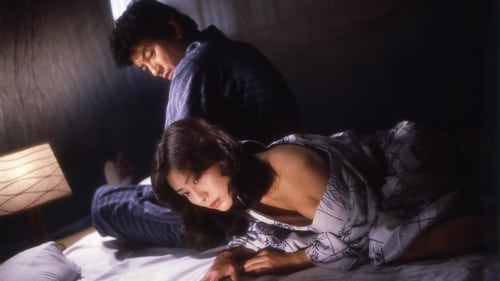
Screenplay
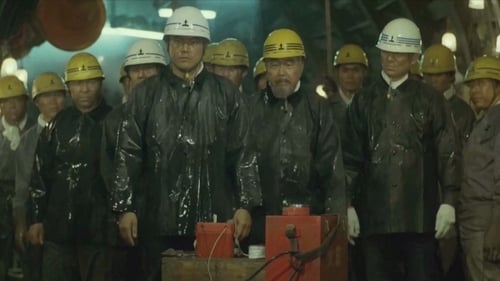
Screenplay
After a passenger ship sinks in 1954, Go Akutsu devises a life-saving project in the form of a tunnel under the Tsugaru Strait. While working on this project Akutsu becomes involved with Tae Makimura leading to his estrangement from his wife.

Screenplay
Remake of 1949 film

Scenario Writer
A story about being scared of getting old.

Screenplay
The world of adults seen by a high school girl in the valley between school and home after school, and the sparkling poison that only a daughter of this age has, gradually spreads ripples in the world of adults.

Screenplay
Mike, hijo de un comerciante inglés de Londres, es enviado por su padre a pasar unas vacaciones a Japón a cargo de la familia Saito en Tokio. El cambio accidental de la cámara fotográfica de Mike por otra idéntica perteneciente a una joven, provocará un lío tremendo, puesto que tras el carrete de fotos que él posee ahora va una banda de traficantes de droga.

Screenplay

Writer
A high-schooler involved in turn-of-the-decade student movements works to escape his comfort zone and apply himself.

Writer
Japanese romance film.

Screenplay
Temari, a geisha, dreams of opening a small restaurant with her little brother.

Screenplay
"The Time of Reckoning" transforms a screwball-comedy plot into a sober study of a successful businessman with serious relationship problems involving three women: his wife of ten years who announces she is pregnant by another man; a mistress who wants to have a baby with him; and an ex-lover who claims he fathered her son.

Adaptation

Screenplay

Writer
Comedy-drama about university tennis players.

Screenplay
Tashiro coincidentally meets his best friend Sugimoto in a bar very close to the apartment in which Sugimoto’s wayward wife is found dead. Although Tashiro is not a suspect in the police investigation, he is racked with guilt and confesses to his wife, Masako. In an effort to further relieve his tortured sense of guilt, he then confesses to Sugimoto. Neither his wife nor his friend can believe that he could have been involved.

Screenplay
A father gives his four daughters his substantial retirement allowance on the stipulation that they leave him alone, as he wants some freedom. Each of the daughters has a romantic interest and it's noticeable that the father, too, has someone in mind.
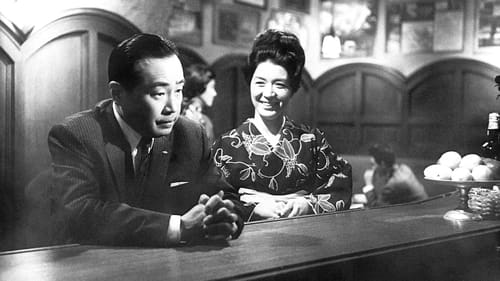
Screenplay
The executive director of the «Chuo Shoji» company, Hidaka Shiro, is called a "demon of work", but the hostess of the bar calls him "the loneliest person in Japan." He lost his wife ten years ago and has been living as a widower ever since. He plotted to marry off his 22-year-old daughter Keiko for political gain, but Keiko is in love with Okuda, who is her father's subordinate. A story full of sadness and joy, depicting a man gripped by different thoughts, as an employee of the company and a father.
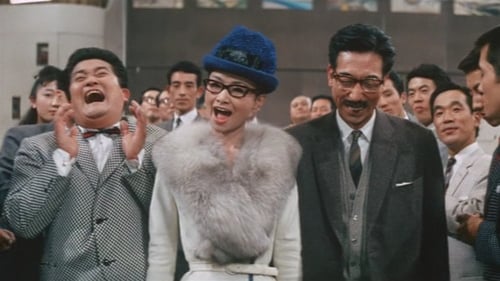
Writer
A group of friends try to find success in corporate Japan.
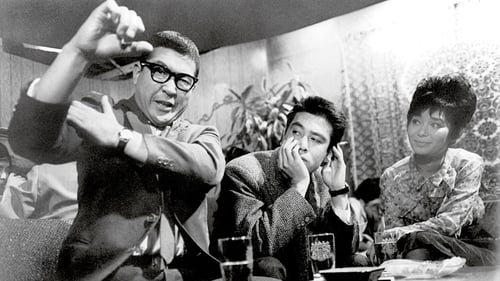
Writer
A salaryman's drunken ravings in public attract the attention of journalists who coerce him into telling them his life's story.

Writer
Shinko Terasawa was always considered to be the odd ball of the bunch. At a time when romance was against school regulations, Shinko was the first to take a bite out of the forbidden fruit. Expelled from her former school, she finds herself in an all-girls school in Jokamachi, where rumors fly. One day, Shinko delivers an anonymous love letter addressed to her English teacher, Ms. Shimazaki. Convinced that the students are playing a prank, Ms. Shimazaki is adamant about getting to the bottom of this "problem”.

Screenplay
A dark family secret sends a 21-year-old French student (Hoshi) on a journey of self-discovery.
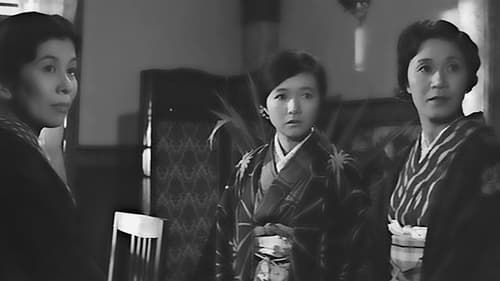
Screenplay
Considered one of the finest late Naruses and a model of film biography, A Wanderer’s Notebook features remarkable performances by Hideko Takamine – Phillip Lopate calls it “probably her greatest performance” – and Kinuyo Tanaka as mother and daughter living from hand to mouth in Twenties Tokyo. Based on the life and career of Fumiko Hayashi, the novelist whose work Naruse adapted to the screen several times, A Wanderer’s Notebook traces her bitter struggle for literary recognition in the first half of the twentieth century – her affairs with feckless men, the jobs she took to survive (peddler, waitress, bar maid), and her arduous, often humiliating attempts to get published in a male-dominated culture.

Novel
Japanese drama.
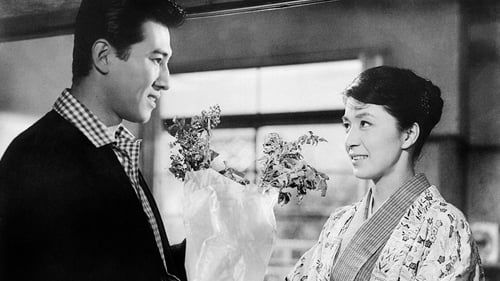
Screenplay
Drama sobre la vida de cinco hijas y la hijastra del dueño de una tienda.

Writer
Based on the comic by Fuyahiko Okabe.
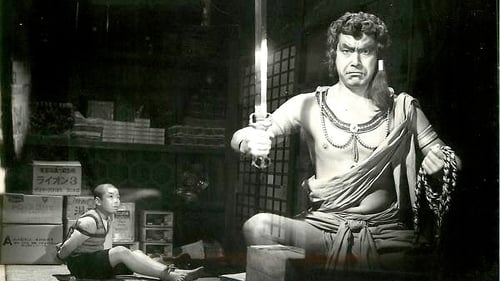
Screenplay
Gen is a lonely orphan boy. His sole sense of companionship comes from an imaginary friend, the god Prince Fudo-Myo. Prince Fudo-Myo comes to the boy's rescue in times of difficulty.

Writer
Based on the comic by Fuyuhiko Okabe.

Screenplay
A young girl is rigorously trained in the feminine arts so that she can become a geisha. As she struggles through life, she learns to live not just as a woman but as a complete person.

Writer
Romantic melodrama set in contemporary Hong Kong, Japan and Laos. Hiroshi Tanaka (Takarada) is a Japanese journalist on assignment in Hong Kong who meets and falls in love with Wu Li Hung (Ming). He proposes to Wu Li but she rejects him because of her distaste for mixed marriages (her mother was Japanese but deserted her family and returned to Japan during WWII). Tanaka locates Wu Li’s mother and unsuccessfully tries to reunite them, but eventually Wu Li accepts his proposal. A joyous Tanaka flies off to Laos to finish an assignment but on the eve of his wedding he is killed there.

Screenplay
In "The Other Woman" the children of a distinguished professor find that the woman they have come to regard as their racy and slightly disreputable Ginza aunt is really their mother.

Screenplay
A woman and her daughter are in love with the same man, a chef at the restaurant that the mother manages. He is slightly crippled from frostbite in his years in Siberian labor camps and considers himself "already dead."
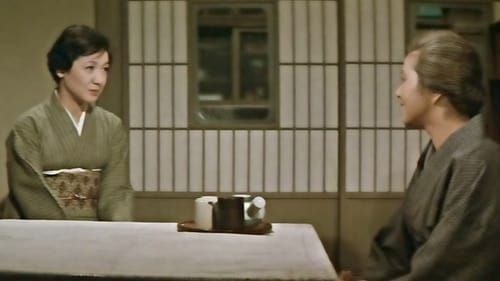
Screenplay
En una familia de clase media de Tokio, una de las hijas (Setsuko Hara) ha enviudado joven, y todos los miembros desean que vuelva a casarse. La madre es una anciana viuda que vive en una casa grande del centro de Tokio. Los hijos están deseando vender la casa, pero no saben qué hacer con su madre.

Writer
Story of young love in the hills.

Screenplay
A modern love story involving different affairs.

Screenplay

Writer
May Kawaguchi is a famous Japanese fashion designer. Returning to Tokyo from her home in New York, she travels incognito with a tour group, in hopes of having a quiet vacation without being noticed. But she is spotted and the press has a field-day with the returning celebrity. Her hopes of rest shattered, she agrees to put on a large-scale fashion show.

Screenplay
Aiko, a bar hostess, falls for the son of a company president who also keeps a mistress, and whose family disapproves of his relationship with the bar hostess.

Screenplay
Story of a family torn apart when Teiji (Mori), the father, develops intimate feelings for a runaway (Kuga) the family has taken into their home.

Screenplay
The actor Koheiji is terribly in love with the wife of his best friend, the playwright Takuro; to get her, he would even kill Takuro.

Script
On Wings of Love is a 1957 Japanese romantic musical film directed by Toshio Sugie. It was Toho's highest-grossing film of the year and the first film released in Tohoscope.

Screenplay
Melodrama about a young factory girl who "chooses riches over chastity".
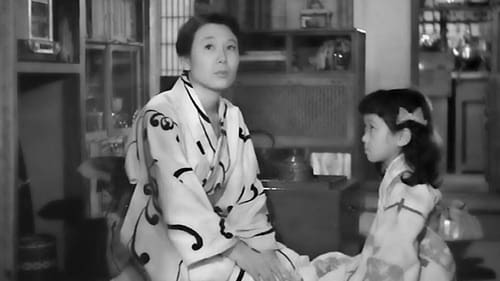
Screenplay
Rika acaba de enviudar y está buscando trabajo. Su agencia de empleo la envía a una casa de geishas en la que necesitan a alguien que se ocupe de la limpieza y de la cocina. Conoce a Tsutayako, la patrona, quien acepta contratarla, pero se entera que la casa de geishas está retrasándose en el pago de sus facturas y que podría ponerse a la venta. (FILMAFFINITY)

Script
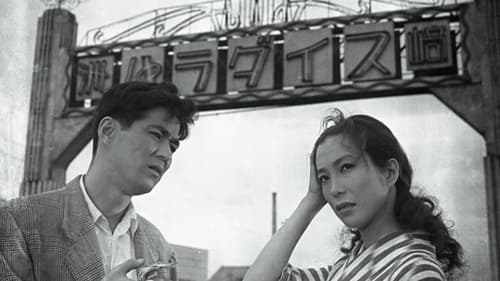
Screenplay
A jobless young couple, Yoshigi and Tsutue, wind up at the outskirts of the Suzaki red-light district in Tokyo. Tsutue talks her way into a job pouring sake for male customers at a small bar run by a sympathetic older woman, while Yoshigi is shunted off into a nearby noodle shop, where he gets a job delivering noodles. Tsutue charms and runs off with one of her clients. Yoshigi, ignoring the attentions of a sweet co-worker, pursues Tsutue.

Screenplay

Screenplay
Kiyoko (Takamine Hideko) and her husband want to open a coffee shop. She becomes increasingly close to the bank clerk (Mifune Toshiro) she's asked for a loan.

Writer
From runaway brides to a typhoon, the continued adventures of Ushikata police station.

Screenplay
Housewives from four neighboring households casually gather at an old well at Kaneko's house in a residential area on the outskirts of Tokyo. If two people come together, they will talk about selling kimonos, if three people come together, they will discuss food shopping, and when four people come together, there will be laughter. Focusing on four housewives who gather at the edge of the well, it depicts the daily life of each household.
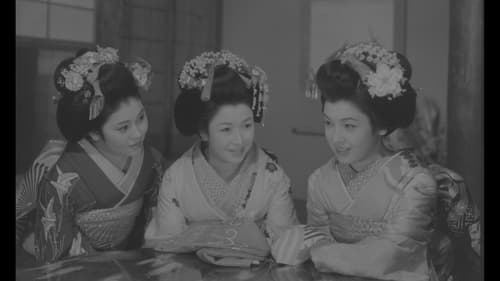
Screenplay

Screenplay

Screenplay
Shizuka, Eiichiro, and Mineko, their father and son, live modestly in a certain suburb, leading a dreary but happy life. Eiichiro is troubled by Shizuka's desire to live together in familiar Tokyo. Mineko is the exact opposite of Eiichiro. A literary masterpiece depicting the fateful sorrow and humor of a mother and child

Screenplay
Lending money, job hunting for civilians and babysitting. All these things are usually not listed on a policeman's job description. But for the officers of this local police station, it‘s part of their daily routine. One day, patrolman Yoshii (Hisaya Morishige) finds an abandoned baby and a six year old girl standing in front of the station. When he's declined by the welfare office, orphanage and local health clinic to take them in, he decides to take care of them himself.

Screenplay
After Shuichiro moved to Tokyo, the Tanno family became completely female, including Mrs. Tanno, Shuichiro's daughter-in-law Manzuko, painter Takashiro Egi, Shizu Kazemaki, Mitsue Nanbu, an intellectual who works in a university laboratory, and an old woman.

Adaptation
Students in a small rural school love their poor but unconventional teacher Mr Matsukuma although he is misunderstood by most of the villagers and is forced to leave. After his departure there is great depression but there is a chance to rekindle the lantern of the title and the values Matsukuma represented ...
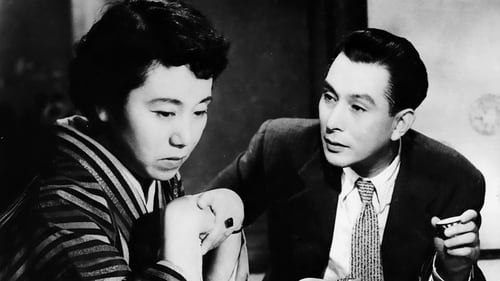
Adaptation
¿Cómo es la vida de una Geisha una vez su belleza se ha desvanecido y se ha retirado? Kin ha ahorrado dinero y se ha convertido en una rica prestamista, pasando sus días cobrando deudas. Incluso sus mejores amigas, Tomi, Nobu y Tamae, que eran sus compañeras Geishas, están ahora en deuda con ella. Para todas ellas, el glamour de sus jóvenes vidas ha pasado; Tomi y Tamae tienen hijos, pero sus hijos las han decepcionado. Kin tiene dos antiguos amantes que aún la persiguen; a uno lo quiere ver, y al otro no. Pero incluso el que recuerda con cariño, cuando aparece, resulta ser una decepción.

Writer

Screenplay
An elderly woman devoted to her foster-daughter searches for a good husband for her.

Screenplay
Three short tales from stories by Ichiyo Higuchi. In one, a young woman is degraded by her family after an arranged marriage. Another deals with the troubles heaped upon a young servant by her family and the wealthy people who employ her. The final story tells of a prostitute and her hopes of finding a new, respectable life.

Writer
Comedy about a 50-something movie director, his new bride, a classical dancer, and his adult son and daughter and their loves.

Writer
A story of unhappy youths and the perils of lack of sex education.

Screenplay

Screenplay
Michiko Asakura was married to the eldest son of the Sakuma family, an unsealed family in Shinshu, but died from her husband and returned to her parents' house in Tokyo with her five-year-old daughter Yoshiko.
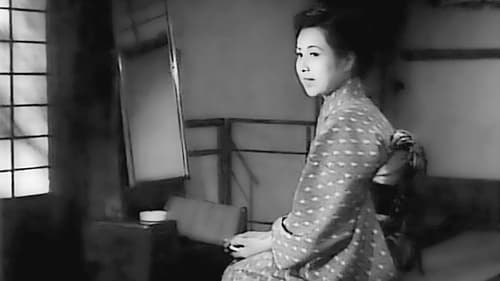
Screenplay
Ten years into a marriage, the wife is disappointed by the husband's lack of financial success, meaning she has to work and can't treat herself and the husband finds the wife slovenly and mean-spirited: she neither cooks not cleans particularly well and is generally disagreeable. In turn, he alternately ignores her and treats her as a servant. Neither is particularly happy, not helped by their unsatisfactory lodgers. The husband is easily seduced by an ex-colleague, a widow with a small child who needs some security, and considers leaving his wife.

Screenplay
A married couple looking for an apartment move in with the husband's co-worker, a widower. The husband becomes jealous of the widower and his wife.
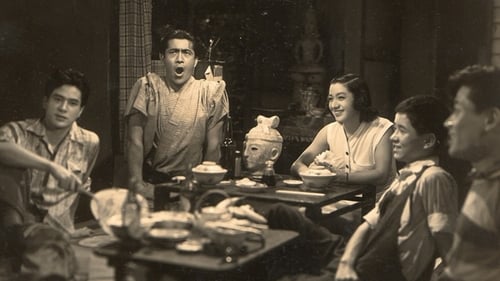
Writer
Following the Second World War, the lives of various people in a poverty-stricken area of Tokyo are entertwined. Pachinko parlor girls, shoeshine boys, a maker of costume jewelry, and a streetcorner artist all struggle to make their livings and to find happiness in difficult surroundings.

Writer
1950s Japanese comedy.

Screenplay
Once an average and seemingly ordinary Tokyo girl, she suddenly finds herself as a TV star owing to her discovery by a casting company, which noticed photographs that her cousin had sent. When another actress falls ill she is given the role instead. Her first film is a success propelling the young actress to popularity, her own fans, money and a house. While everything looks dandy from the outside not all is well within the family however.

Writer
Melodrama by Kon Ichikawa
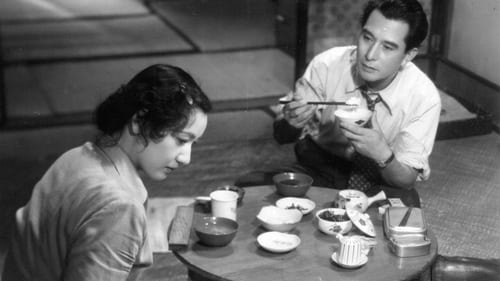
Screenplay
Situada poco después de la Segunda Guerra Mundial, El almuerzo cuenta las dificultades matrimoniales entre el salaryman Hatsunosuke y su mujer Michiyo. Se centra en la crisis emocional de una ama de casa aburrida. El tedio de su vida doméstica -consumida por la repetición de labores como cocinar y limpiar- aumenta con la visita de la sobrina de su marido, Satoko. Su llegada y la excesiva atención que le presta su marido, provocan el aumento de la infelicidad de Michiyo, forzada a enfrentarse con su futuro

Screenplay

Screenplay
In a small town, according to the homecoming of Professor Ishinaka, the youth culture group was overwhelmed to make a presentation for the summer festival, but because of lack of funds, she works part-time at the spectacle of a tour, a haunted house Especially. The ghost was a struggle amongst the people, it was a great success in filling the crowd, but in the circus hut next to it, Kenji who was supposed to have disappeared was pitiful.

Screenplay

Adaptation
Adaptation of a novel by Yojiro Ishizaka, originally released in two parts.

Screenplay
Continuation of The Blue Mountains: Part I. Released a week later.

Writer
Teacher Yukiko finds herself in opposition to conservative faculty and villagers after defending a student for being in a relationship with a young man from Tokyo.
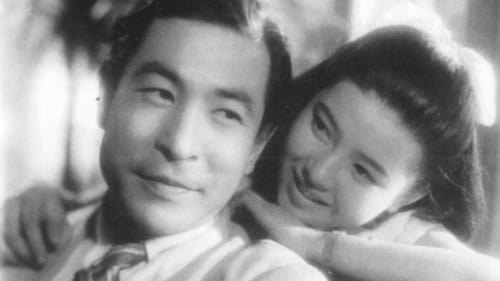
Executive Producer
During his summer holiday, Kawasaki Ryuichi (Ryuzaki Ichiro), a handsome engineer in his late twenties, visits his teacher and mentor, Professor Inagaki (Sugai Ichiro), at his seaside home. There he meets the professor's lovely young wife, Sachiko (Hamada Yuriko), and is unsettled by the striking resemblance she bears to his wife, who died three years earlier. Attracted to Sachiko, he does his best to hide his feelings. The couple, however, senses a deep-seated melancholy in him. Attributing it to the loss of his wife, they urge him to marry their niece, Kaoru, but he is not interested. Shortly after, Fumiko , Sachiko's older sister, realizes that Sachiko and Kawasaki have feelings for each other, but she keeps her counsel. One day Kawasaki, Sachiko, and Kaoru go boating when a storm forces them to stay overnight at a hotel. Unable to sleep, Kawasaki takes a walk along the beach where he finds Sachiko, also unable to sleep. He declares his love for her.










































